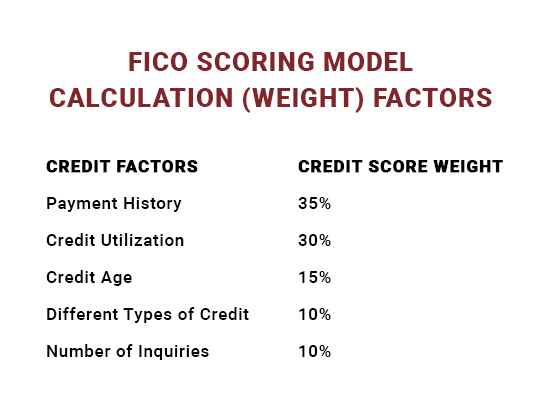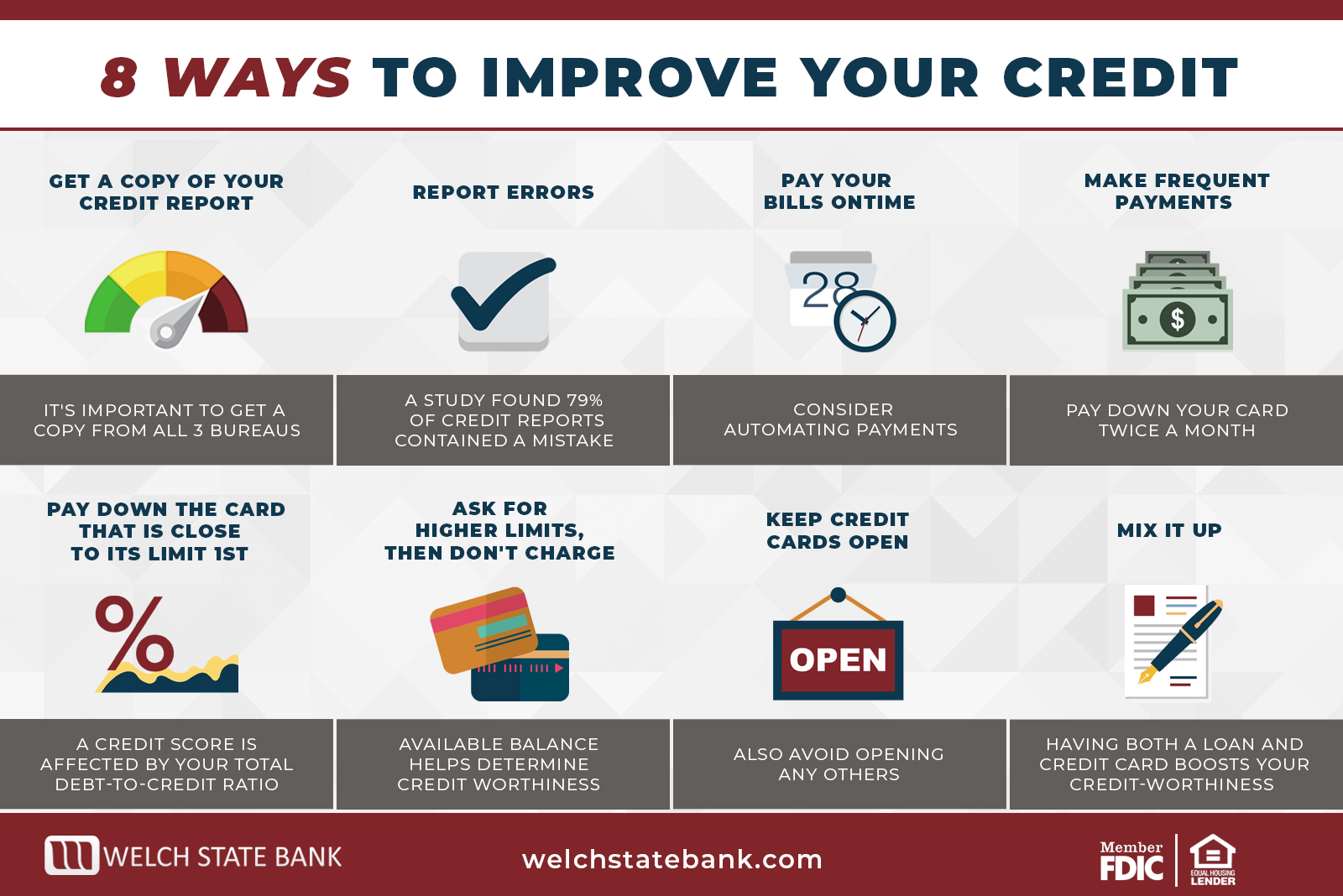
Should your credit score not be where you want it to be, know that you are not alone. Many Americans struggle with having low credit scores, but you can do something about them. Choosing to work towards raising your credit score takes time, but it is so worth it in the long run. There are so many ways to improve your credit score, and we have the eight steps you need to take to put you on the path towards success.
What is a Credit Score?
The term credit score refers to the three-digit number that lenders use to decide if they will give you a credit card or a loan. This number is incredibly important to your financial life, because the higher your credit score is the better terms and rates you will receive from financial institutions.
In the chart below you will see how different factors affect your credit score. Though this is FICO’s Scoring Model, TransUnion, Equifax, and Experian scoring model is similar.

Benefits of a Good Credit Score
The higher your score, the lower your interest rates will be and the easier it will be to obtain new credit or loans to help you meet your financial goals. On the flip side, the lower your credit score the harder it is to get low insurance rates and to qualify for credit.
8 Ways to Improve Your Credit Score
Creditors typically report updated information about your loans and lines of credit once a month, so making the right steps for 30 days can help improve your credit score. Despite that fact, it is important for you to understand that to make large strides with your credit score you are in for a multi-year process. So, keep your head down and continue working towards a better credit score.
Below you will find the best steps to help start improving your credit score in as little as 30 days.

1. Get a copy of your credit report from all 3 bureaus.
There are three major credit bureaus, Experian, TransUnion, and Equifax. You can get a free copy of your report once a year on the government website: www.annualcreditreport.com .
2. Pay your bills on time, every time.
The number one factor in your credit score is payment history. Late payments quickly drop your credit score, so make sure to make payments on time, every time. At Welch State Bank, we understand that life gets busy and sometimes payments can be unintentionally missed. We want you to consider automating your monthly payments to ensure that you never miss a payment, no matter what is happening in your life.
3. Make frequent payments.
As you are aware, it is important to pay your bill every month when it is due. But we want you to consider paying your bill twice a month. We understand that paying the full amount owed twice a month may not be an option but paying anything at all for a second payment can make huge strides to improve your credit score!
4. Pay down the card that is closest to its limit first.
Credit score is affected by your total debt-to-credit ratio, and the lower your balances are the higher your score will be. So, as you work to pay down your credit cards, focus on paying down the card that has a balance closest to its limit first. This simple move will make a wonderful impact on your credit score.
5. Ask for higher credit limits.
This may sound silly but follow us on this. The more available credit you have works to reduce your overall credit utilization ratio which is the key component to your credit score. Before you embark on asking if your credit limit can be raised, know that some credit card companies run an inquiry on your credit report before approving a higher limit. This will be a negative on your credit report. So, ask your creditor their policy BEFORE requesting a higher credit limit.
6. Report any errors you find on your report.
Removing incorrect information from your credit report is the best way to generate substantial short-term credit improvement. A study found that 79% of credit reports contained a mistake, so go over your credit report as carefully as possible to ensure all information on it is correct. If it is not, file a dispute with the credit bureau.
The main items to focus on as you review your credit report are:
- Collection Accounts
- Late Payments
- Credit Inquiries
You can dispute anything with a credit report that is believed to be inaccurate. The credit company will launch an investigation and has 30 days to acquire documentation in your favor and remove the false claim. Disputing accounts on your credit report can be done online, by phone, or by mail.
7. Keep credit cards open and avoid opening any others.
While it may sound counterintuitive, keep unused credit cards, and do not close them because they are unused. Older cards show lenders that you have a longer credit history that is important should you be applying for a mortgage or any other type of loan.
Credit age is worth 15% of your credit score. So, by leaving your accounts open you can gain points in this category.
8. Mix it up.
The credit bureau wants to see that you can successfully manage a variety of credit types.
For example, if you only have a loan, get a credit card. Consider getting the type of credit you do not have. Having both types boost your creditworthiness and can make you eligible for better interest rates on futuristic loans.
We understand that this is a lot of information to take in, but we assure you that if you follow these 8 steps your credit score will begin improving in as little as 30 days. If you have any questions or concerns about your credit score or any of these steps, please do not hesitate to contact us. We are here to help!

